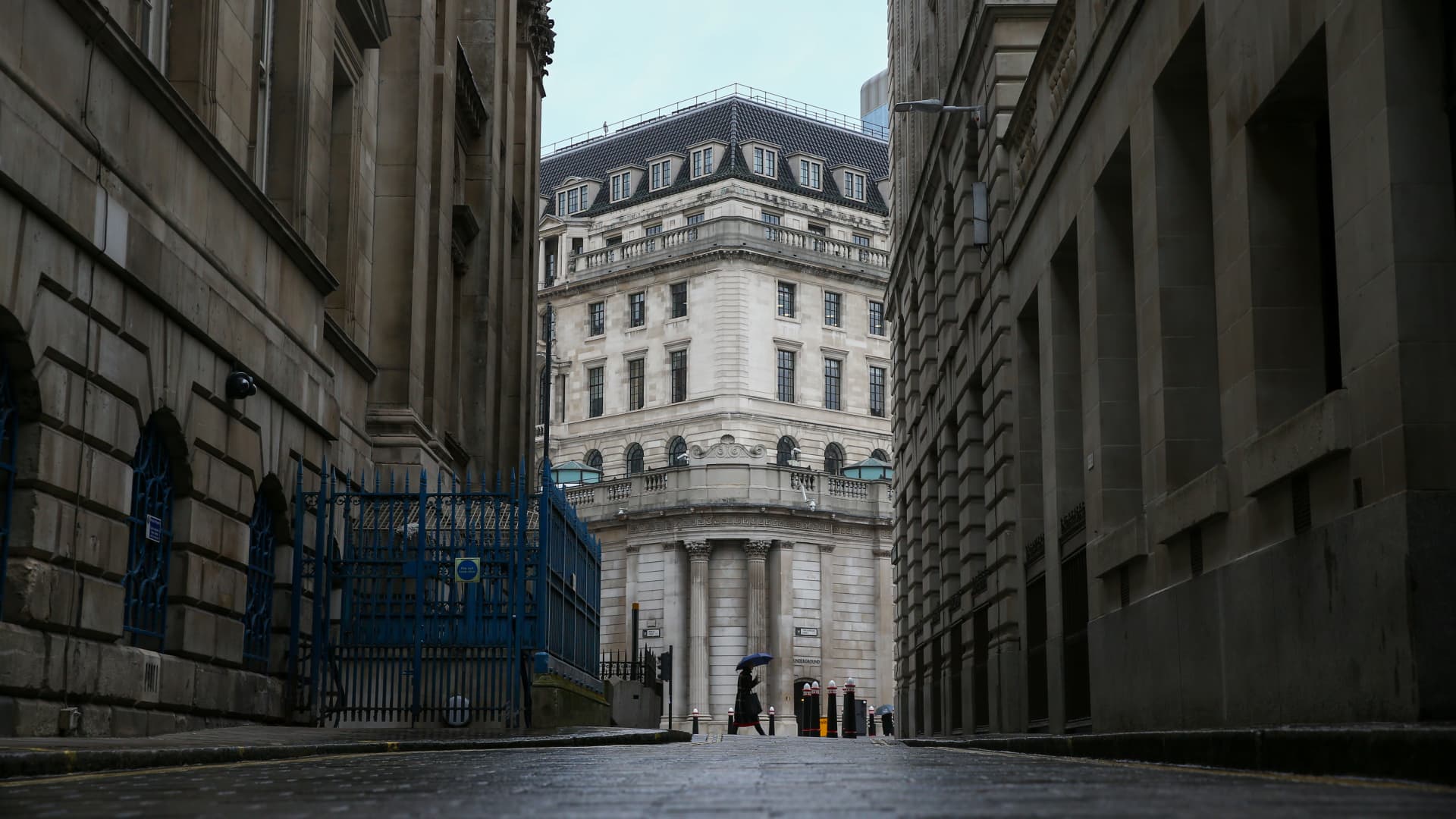Markets need to ‘re-anchor their thinking’: Bank of England chief economist hints that traders have it wrong

LONDON — The Bank of England remains committed to its “key goal” of bringing down inflation, but hopes markets will “re-anchor” their interest rate expectations, Chief Economist Huw Pill told CNBC on Friday.
The central bank on Thursday raised interest rates by 75 basis points, its largest single hike since 1989, and warned of a prolonged recession while also looking to temper market expectations for further aggressive monetary policy tightening.
The Bank of England has a 2% inflation target, but price rises hit a 40-year high of 10.1% in September and are expected to peak in the fourth quarter.
“We need both to be raising [the] bank rate but also to be taking actions to shrink the QE [quantitative easing] portfolio, to tighten policy in order to achieve our objective,” Pill said.
“And the fact that there have been these disturbances in markets, which have had their own needs to be addressed, that hasn’t deterred us or deflected us from this medium-term key goal of what the Monetary Policy Committee is trying to do.”
Pill suggested that recent volatility in the U.K. economy, such as the bond and currency market panic that greeted former Prime Minister Liz Truss’ fiscal policy announcements in late September, had distorted market expectations for the Bank’s future interest rate hiking trajectory.
“We don’t think interest rates would need to rise as high as the market has been pricing, precisely because that would induce a slowdown in the economy that is bigger than is required to get these inflationary dynamics under control,” Pill added.
The Bank expects an economic recession that began in the second half of 2022 to now last until mid-2024, which would be the longest period of GDP contraction since records began.
“What we are seeking to do, we’re always seeking to do this, is to find that balance that gets us back to our 2% inflation target without generating unnecessary and costly problems in the real side of the economy,” Pill said.
“And so it’s creating that balance, signaling that balance, that was really our key message yesterday.”
The Bank issued uncharacteristically direct guidance to markets on Thursday, and Pill said the period of political and economic disturbance in recent months meant the Monetary Policy Committee was trying to “re-anchor [its] own thinking in the more fundamental drivers” of inflation.
“I think we’re trying to re-anchor our communication around a forecast that emphasizes those more fundamental drivers,” he said.
“And I think we’re hoping, we’re intending that gives an opportunity for markets to re-anchor their thinking, and ultimately their pricing, in that sort of world looking through and beyond the disturbances that we’ve seen over the last few months.”
The Bank was forced to intervene in the U.K. government bond market with an emergency two-week gilt purchase program in September, after the market’s reaction to Truss’ tax-cutting “mini-budget” left pension funds on the verge of collapse and sent the pound to an all-time low.
Markets have stabilized somewhat since the instalment of former Finance Minister Rishi Sunak as prime minister. His return to a more conservative fiscal policy has in turn eased pressure on the Bank to act even more aggressively on inflation.









